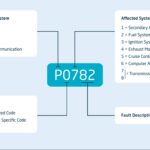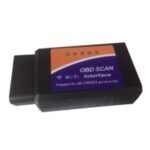Encountering unfamiliar fault codes when using an OBD2 scanner can be a frustrating experience for any car owner. One user recently faced this issue with their newly purchased approved used 2010 BMW Z4 sDrive 30i. After connecting an OBD II wifi interface and running the Torque app on their Android phone, two fault codes surfaced: P00AA and the less common B2AAA.
The P00AA code was readily identifiable as an inlet temperature sensor fault, a relatively standard OBD2 code. However, the B2AAA code proved to be more elusive. Despite extensive online searches, no information could be found regarding this specific fault code in relation to OBD2 systems or BMW vehicles. The absence of any warning lights on the dashboard further complicated the situation, as the car appeared to be performing without any noticeable issues.
Seeking clarification, the car owner approached the local main dealer from whom they had purchased the vehicle just weeks prior. However, the service department exhibited reluctance to investigate the fault codes, suggesting that the codes displayed by aftermarket OBD2 devices and apps were not recognized by BMW. This response raises questions about the universality of OBD II standards, which are generally understood to ensure interoperability across different manufacturers. While OBD II mandates a set of standardized codes, manufacturers can and often do implement proprietary codes beyond these standards for more specific diagnostics.
Despite initial resistance, the dealership eventually agreed to inspect the vehicle under warranty after the owner highlighted the recent purchase and warranty coverage. This situation underscores the importance of understanding your vehicle’s warranty and persisting with dealerships when legitimate concerns arise, even when faced with skepticism regarding aftermarket diagnostic tools. The case of the B2AAA OBD2 code serves as a reminder that while OBD2 scanners are valuable tools for preliminary diagnostics, interpreting less common codes may require professional expertise and manufacturer-specific diagnostic equipment to fully understand and resolve potential issues.

